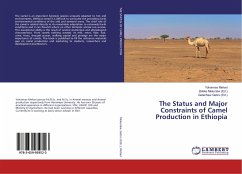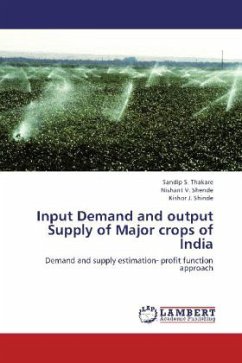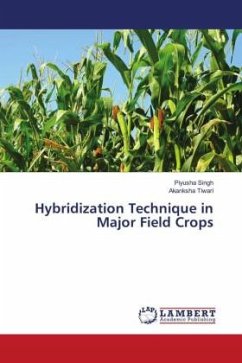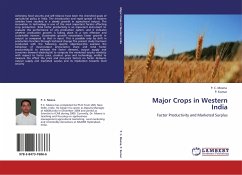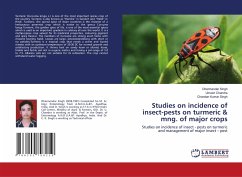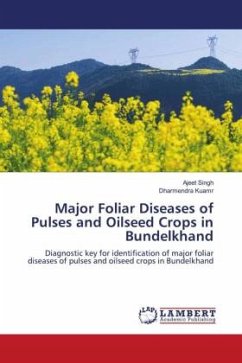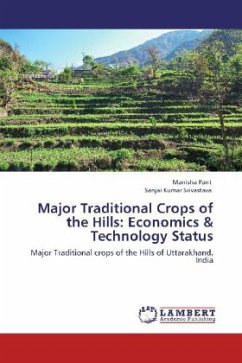
Major Traditional Crops of the Hills: Economics & Technology Status
Major Traditional crops of the Hills of Uttarakhand, India
Versandkostenfrei!
Versandfertig in 6-10 Tagen
39,99 €
inkl. MwSt.

PAYBACK Punkte
20 °P sammeln!
The Indian Himalayas are divided into North-Western and North-Eastern Himalayan regions and encompasses 11 states of India out of which 8 states exist in North- Eastern Himalayan region and 3 states in the North- Western Himalayan region.Uttarakhand is one of the three states embraced by North-Western Himalayan region. Traditional crops enjoy a special status in hills of Uttarakhand from time immemorial and are important constituent of hill agriculture, which offer enormous opportunities to practice these crops as it as several inherent and unique advantages in terms of agro-climatic condition...
The Indian Himalayas are divided into North-Western and North-Eastern Himalayan regions and encompasses 11 states of India out of which 8 states exist in North- Eastern Himalayan region and 3 states in the North- Western Himalayan region.Uttarakhand is one of the three states embraced by North-Western Himalayan region. Traditional crops enjoy a special status in hills of Uttarakhand from time immemorial and are important constituent of hill agriculture, which offer enormous opportunities to practice these crops as it as several inherent and unique advantages in terms of agro-climatic conditions and rich biodiversity.Although over the years, the production of these crops has been , in general, rising in the state but still their potential have not been fully exploited.Therefore,there is need to focus on these crops and make efforts for their development which would reflect progressive and futuristic perceptive for ensuring food security in the hills.The major policy implications of the study are the need to follow strong extension programmes regarding the adoption of improved varieties of crops, correct method of use of farm technology and development of efficient infrastructure.



